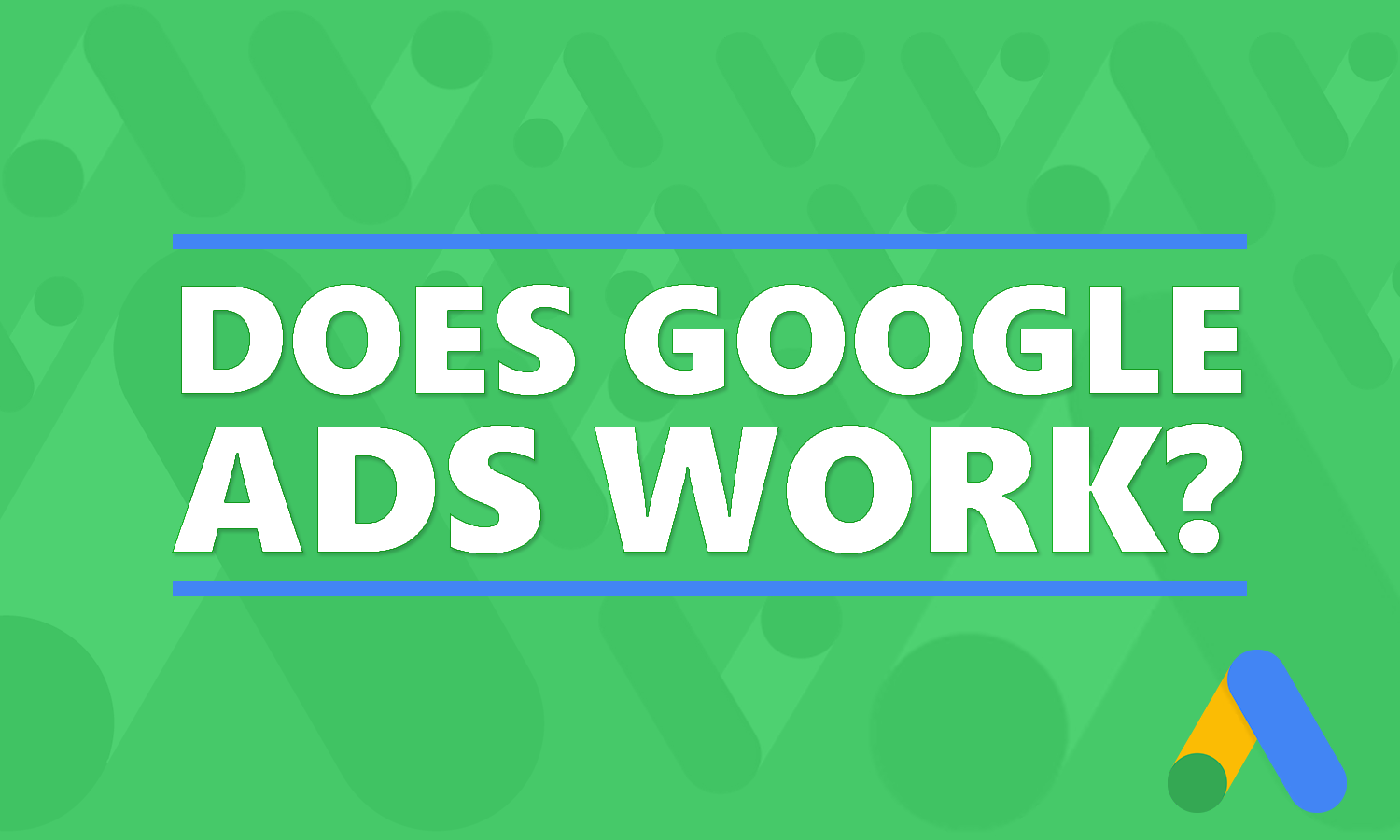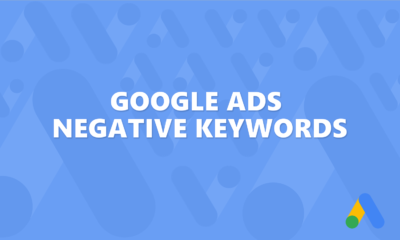Does Google Ads Really Work?
Yes, Google Ads Absolutely Works! I can say that with complete honesty as I have been managing Google Ads for clients since 2011. I’ve helped many businesses grow with Google Ads. It is an absolutely great way to generate high-quality leads and sales.
Having said that it’s not as simple as just running ads and expecting to get amazing results. It takes some strategy, creativity, setup and optimization to make Google Ads successful.
When done correctly, the payoff can be great for your business. If you want to generate leads, then Google Ads can help you to get cost-effective leads. If you run an eCommerce business then you can absolutely generate sales.
When done poorly, Google Ads can be a big waste of money. You can’t just watch a few Youtube videos, throw up some ads and expect it do do wonders for you. If you have little to know experience running Google Ads, you are going to have a steep learning curve to overcome. This will require patience and a commitment to constantly learning how to effectively manage Google Ads.
So, what do you need to run a successful Google Ads campaigns? First off you’ll need quality keyword research so that you are targeting the right users that are actually searching for your service or product. You’ll also want to create compelling ad copy and design enticing display ad creatives with high clickthrough-rates. Finally, it’s important to track what works best by performing A/B testing on different ads in order to find out which ones are converting the best from users clicking through from ads or visiting your website directly after seeing your ad being displayed across the web.
The key takeaway here is that Google Ads requires a bit of know-how. Again, you may find it tough to get results by reading a few blog posts and videos then turning on some ads. But, if used correctly it will become an extremely beneficial asset in driving leads or sales for your business. If you have already tried running a few campaigns or think you need help, then check out our Google Ads management service.
How Long Does Google Ads Take To Work?
The answer to this depends upon a few things. First of all what is the definition of “work?” If by work you mean traffic, then you can generate traffic immediately. Assuming you are targeting the right audience, this traffic can be great for branding and awareness. At this stage, you are already getting your ads to an audience you think may be interested in your product or service. Well done!
Now, if you are seeking leads or sales, then that could take a little longer. Much of this answer depends upon the initial set up of the campaigns. Are you using the right keywords to target your audience? If not, then you could end up spend a good deal of money without generating leads or sales.
But, lets assume you properly set up the campaigns, used great keywords, crafted compelling ads and are sending traffic to landing pages that really sell your service or product. If you get this part nailed, then you can generate results within a couple days.
Once you can consistently generate leads or sales, then you may want to optimize the account to achieve a certain cost per lead or return on ad spend (ROAS). You may be getting leads in but the cost per lead is too high and you need to cut it in half. The sales may be rolling in but the return is not high enough. Maybe you are getting a two to one return but you need at least four to one for it to make sense.
So, how long does Google Ads take to achieve these types of targets? That can take much longer and typically requires more skill and knowledge to achieve. There really is no one-size-fits-all answer to this. Every account is unique and each business requires different goals and objectives.
Reasons Why People Have Issues With Google Ads
Your target audience will regularly use certain keywords and phrases when searching on Google. Finding these keywords and targeting them is paramount to the success of your Google Ads campaign.
They Use Too Many Broad Match Keywords
Broad match keywords can be an absolute account killer. I have seen way too many Google Ads accounts struggle and waste budget due to the heavy use of broad match keywords. Oftentimes, it is due to the person managing the account simply not knowing any better – looking at you business owner who probably should not be managing your own Google Ads account. 🙂
In general, broad match allows Google to go well beyond the keywords you use, to show your ads to additional users who they think may be interested in your ads. And, you really don’t want to give Google the liberty to do this at a large scale. Quick example below….
Let’s say you sell athletic shoes for women. You decide to target the following broad match keyword in your account: women’s running shoes
That single broad match keyword could trigger your ad to show for the following search queries (the phrases people type into Google):
- running shoes
- running shoes for ladies
- best running shoes
- mens running shoes
- cheap walking shoes
- insoles for running shoes
- women’s dress shoes
As you can see, some of these search terms are relevant while others are not. This is how you can unknowingly show your ads to people who have no interest in your product. This is how you can waste a bunch of money.
They Don’t Use Negative Keywords
Negative keywords (negatives) are the antithesis of keywords. With negatives, you can add specific words and phrases to keep your ads from showing to people. For example. let’s say you run a pet grooming business and you do not want to target your competitors. You could add the names of your competitors as negatives, which will ensure you don’t spend money showing ads to people who search for them.
Oftentimes, people running Google Ads are not aware that the keywords they use actually trigger very specific search queries – the phrases people actually use when searching Google. On the surface, they see keywords that seem relevant and good to use. But, do to a combination of those keywords and the match types used, they could be resulting in ads showing up for search queries that are largely irrelevant. This results in part of the budget essentially being wasted.
Further Reading: Keyword Match Types
They Don’t Have Conversion Tracking Properly Setup
This is more common than you might think. One of the first things I do when review a Google Ads account for the first time is look at the conversion tracking. I want to know if it is setup to accurately record leads (or sales, for eCommerce). If conversion tracking is not set up correctly, then Google Ads can’t properly record conversions. Thus, you may think your account is not performing well when the reality is it is performing better than you think. You just don’t know it because you can’t see the conversion data in the account.
Poor Geographic Targeting
If you are a service-based business that has a specific city or region you want to target because that is where you provide service, then getting this right is key. There are some settings in Google Ads that will allow you to target beyond the geographical targeting you set up. If this happens, then you could be unknowingly showing ads to people outside your service area, which can negatively impact performance.
They Don’t Actively Manage Their Account
This is a common issue as well. You can’t set it and forget it…RIP Ron Popeil. You have to actively manage the account, analyze new data, make adjustments and iterate. It’s a constant process. If you set it up and make occasional changes, then you drastically reduce your odds of success.
The Wrap Up
So, Does Google Ads Work? The answer is yes. I refer to Google Ads as a tool. It is versatile but it is designed to help businesses grow. If you use the tool correctly and take full advantage of it, then it will be useful for you and your business. If you don’t use the tool correctly, then you could struggle. Just because someone uses a wrench to try and hammer in a nail, doesn’t mean there is a problem with the wrench!
Of course, Google Ads is not the only game in town. There are plenty of other ways to advertise your business online. Check ’em out.




